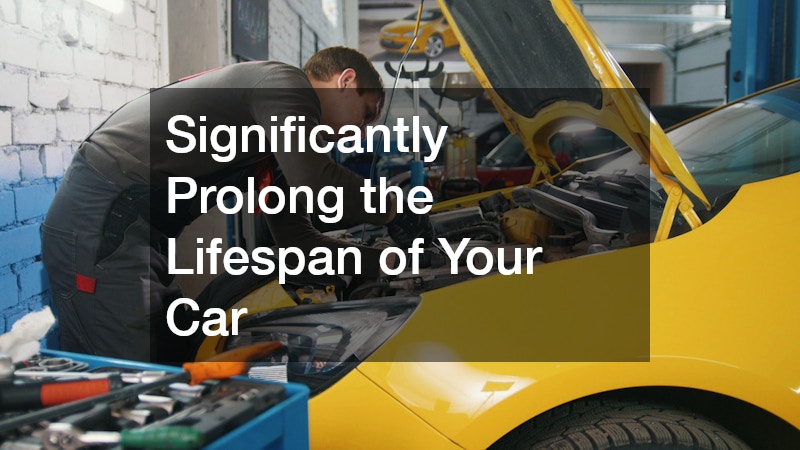
Cars are a significant investment, and maintaining them properly ensures they last longer and perform better. Let’s explore the top auto repair tips to extend the lifespan of your vehicle and keep it running smoothly for miles to come.
How Often Should I Perform Maintenance on My Vehicle?
Regular Oil Changes
Regular oil changes are vital for reducing engine wear and preventing costly breakdowns. Over time, oil loses its ability to lubricate and clean the engine, leading to increased friction and heat.
Ignoring oil change schedules can result in sludge build-up, decreasing engine efficiency and life expectancy. Manufacturers typically recommend oil changes every 3,000 to 5,000 miles to maintain optimal engine health.
By investing a small amount in regular oil changes, you can save thousands in potential engine repairs. Ensuring your mechanic uses high-quality oil can further enhance performance and fuel economy.
Tire Maintenance
Regular tire maintenance is crucial for vehicle safety and longevity. Frequent tire checks, including checking tread depth and pressure, can prevent accidents and improve gas mileage.
Tire rotations should be done every 5,000 to 8,000 miles to ensure even wear and extend tire life. Uneven tire wear can lead to reduced traction, increased fuel consumption, and costly replacements.
Keeping your tires in top condition through proper rotation and alignment can improve overall vehicle performance. Investing in quality tires and maintaining the correct inflation are key for both safety and fuel efficiency.
Brake System Inspections
Regular brake inspections are critical to prevent serious mechanical failures and ensure driver safety. Brake systems become less effective over time, requiring periodic checks to ensure proper function.
Inspections should focus on brake pads, rotors, and fluid levels to ensure optimal performance. Failure to maintain your brakes can lead to dangerous situations and expensive repairs.
Upgrading to high-quality brake components can enhance stopping power and durability. It’s crucial to address any unusual noises or changes in braking performance immediately with a professional.
What Are the Best Practices for Fuel Efficiency?
Smooth Driving Habits
Developing smooth driving habits is a simple yet effective way to improve fuel economy. Accelerating gently and applying the brakes softly can reduce fuel consumption significantly.
Rapid acceleration and braking not only waste gas but also strain engine components, reducing their lifespan. By adopting a more relaxed driving style, you reduce stress on your car and save money at the pump.
Keeping a consistent speed on highways and using cruise control when possible also contribute to better fuel efficiency. Maximizing your car’s performance through conscious driving can lead to noticeable savings.
Proper Tire Inflation
Proper tire inflation is one of the easiest methods to improve your vehicle’s fuel efficiency. Under-inflated tires create excess drag, causing the engine to work harder and consume more fuel.
Regularly checking tire pressure and keeping it at the manufacturer’s recommended levels can enhance handling and reduce the risk of blowouts. Well-inflated tires also wear more evenly, extending their lifespan.
Investing in a good tire pressure gauge and checking your tires monthly ensures optimal inflation. This small habit can lead to significant fuel savings and improved vehicle safety.
Use of Quality Fuels and Oils
Using high-quality fuels and oils can significantly affect your engine’s performance and longevity. Top-tier gasoline contains additives that clean your engine and prevent deposit build-up, enhancing efficiency.
Likewise, premium oils are designed to withstand higher temperatures, offering better protection for your engine. Investing in better fuels and oils helps maintain your car’s performance and reliability over time.
It’s essential to follow manufacturer recommendations regarding fuel grade and oil type for your vehicle. Making this a standard practice can lead to smoother engine operation and fewer maintenance issues.
How to Address Common Car Problems Promptly?
Identifying Warning Signs
Identifying warning signs early is pivotal to preventing serious car issues. Unusual noises, smells, or dashboard warning lights are often indications of underlying problems.
Ignoring these signs can lead to major mechanical failures and expensive repairs. Paying attention to changes in your vehicle’s behavior can help you address problems before they escalate.
Regularly scheduling diagnostic checks with professionals can catch issues early, saving you time and money in the long run. Acting promptly at the first sign of trouble ensures ongoing vehicle reliability.
Proactive Repairs
Proactive repairs and maintenance are essential to keep a vehicle in optimal condition. Addressing small issues promptly prevents them from becoming larger, more costly problems.
Ensuring that routine repairs, such as replacing worn-out belts or hoses, are done on time can add years to your vehicle’s life. This forward-thinking approach can mitigate most common car problems.
Keeping a detailed service history helps you and your mechanic make informed decisions about future maintenance needs. This organized approach can reduce the likelihood of unexpected breakdowns.
Professional Assistance
Consulting with car professionals for complex problems is vital to maintaining your vehicle’s health. Experienced mechanics can diagnose and resolve issues that might elude even the most diligent DIY enthusiasts.
Building a relationship with a trusted mechanic can ensure consistent and reliable care for your vehicle. Relying on expert knowledge for regular checkups and repairs guarantees a comprehensive approach to car maintenance.
Professional insights into the latest automotive advancements ensure that your vehicle receives the best possible care. Prioritizing expert assistance leads to safer journeys and long-term cost savings.
Adopting a proactive approach to vehicle maintenance can significantly prolong the lifespan of your car. By following these tips and addressing issues promptly, your car will continue running smoothly for many more miles.



